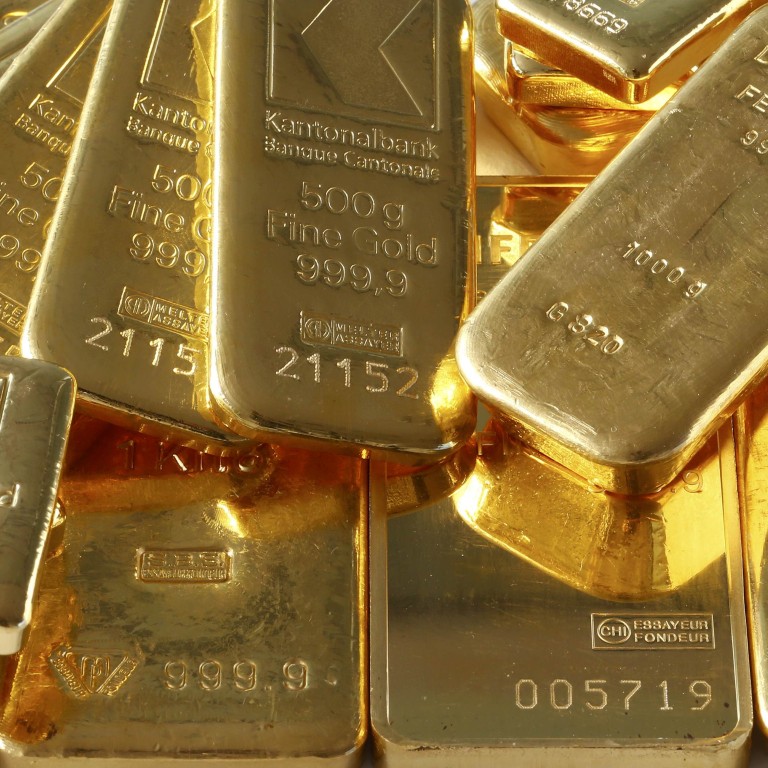
Shinier days ahead despite Swiss 'no' vote on gold reserves
As heartaches go, there was a poignant one for gold bugs last weekend.
That’s when the Swiss voted down a motion that would have required the nation’s central bank to hold one-fifth of its assets in gold.
If the “Save Our Swiss Gold” had been successful, it would have forced the Swiss National Bank into the gold buyer’s camp to the tune of about 60 billion francs (HK$478 billion) at current prices.
By some accounts, the central bank would have had to buy 1,500 metric tonnes of gold, or around 11 per cent of annual gold mining production for each of the next five years.
Gold that is already owned by the SNB, but held in custodial vaults in Britain and Canada, was to be repatriated to vaults inside Switzerland under the proposal. Taking possession was necessary because “otherwise it might be gone for good”, according to one proponent of the bill.
In the end, Swiss voters didn’t buy the gold argument. A resounding 77 per cent said it was an idea they wanted nothing of.
Also firmly in the “no” camp was the Swiss central bank. It argued that buying gold, which it would then be legally prohibited from ever selling, was a bad idea. Instead of bringing stability as hoped, the motion would limit the central bank’s ability to intervene in the forex market to help weaken the franc.
Meanwhile, the proponents saw it in a different light. Without a partial gold-backed currency, Switzerland would become beholden to European Union monetary policy.
They also warned it was dangerous for the Swiss central bank to weaken the franc, as it has done, by “printing hundreds of billions of worthless paper money”. Next year, they say, monetary debasement looks set to even ramp up a notch, as almost all the major central banks are said to be mulling new forms of QE.
But the movement led by the right-leaning Swiss People’s Party was always going to be a hard sell.
Governments around the world still have vivid memories of staring into the financial abyss just under a decade ago.
Ever since then, Keynesian-supported economics is almost a new religion.
And for gold, that means the existential crisis lives on. Notions of rolling back the clock to era of sound money are really more about nostalgia than realpolitik.
Interestingly, gold prices seem to have done better since having this catharsis.
As expected, the “no” vote wasn’t greeted well by the markets at the start of the week, with gold undergoing a smackdown in early Asian trade.
Even the gold bugs were moved to concede that the long run of bad luck crowd hadn’t come to an end. Some gold newsletters expressed gloom that prices were headed lower.
Strangely, gold then rebounded, rising a massive 3.8 per cent to recover the US$1,200 per ounce level.
There wasn’t any news flow to drive the price, according to Julius Bar analysts, who said that the price of gold and crude oil “just went higher on their own volition”.
Could it be that gold, abandoned by even the acerbic Swiss, is finally recovering its backbone?
Notably, there are some smart money guys around who seem to be taking a closer look.
Peter Lewis, the former chief executive of MF Global in Hong Kong, included references to the Swiss referendum in notes he sent around last week.
Still, he wonders whether the market is beginning to look more favourably upon safe-haven assets as central banks have “lost control”.
Lewis said he’s recently been buying gold himself in the belief that prices have bottomed.
One encouraging sign is gold’s rise alongside the US dollar, an anomaly that could signal something very wrong is brewing.
Lewis says he is betting long on gold derivatives known as CFDs, or contracts for differences.
For gold believers, the Swiss rejection might mark the beginning of shinier days.

